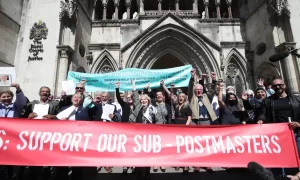The Institute of Directors (IoD) has launched a new code of conduct aimed at promoting ethical behaviour among business leaders, in an effort to restore public trust following several high-profile corporate scandals.
Referred to as the “bosses’ union,” the IoD has created this guidance to help rebuild the reputation of business and instil ethical practices in the boardroom. This move comes in response to significant corporate failures at the Post Office, Carillion, and BHS, which have severely damaged the public’s perception of business leadership.
Jonathan Geldart, the IoD’s director-general, remarked, “On occasion, business decision-makers fall short of what society expects. Those at the top may lose touch with what really matters, namely the need to demonstrate exemplary values and integrity in both their business decisions and their personal behaviours. As a result, in recent years we have observed corporate scandals, which have exerted a negative effect on the esteem in which business leadership is held.”
The Post Office scandal, involving the Horizon IT system, led to hundreds of sub-postmasters being wrongfully convicted for theft and false accounting, marking the largest miscarriage of justice in British legal history. Carillion’s collapse, the largest industrial failure in the UK, was caused by mismanagement and dubious accounting practices, resulting in the loss of 3,000 jobs and delays to over 450 public sector projects. The demise of BHS, once owned by Sir Philip Green, endangered thousands of jobs and pensions, with a parliamentary inquiry labelling it “the unacceptable face of capitalism.”
The IoD’s code includes principles such as demonstrating exemplary standards of personal conduct, acting with honesty and integrity, adhering to strong ethical values, communicating openly and honestly, taking personal responsibility for actions, and treating people without discrimination or bias. The code is currently out for consultation and is designed to be a voluntary commitment rather than an additional layer of compliance.
The code was developed by a commission led by Lord McNicol of West Kilbride, a trade unionist and former general secretary of the Labour Party. McNicol acknowledged that the guidelines in the code were “matters of common sense,” but stressed that it could serve as a valuable reference for directors facing stressful decisions, allowing them to consider, “What would a responsible director do in this situation?”
By implementing this code of conduct, the IoD aims to foster a culture of ethical behaviour and accountability within the business community, helping to prevent future scandals and regain public confidence in corporate governance.
Read more:
Institute of Directors Introduces Code of Conduct for Business Leaders

